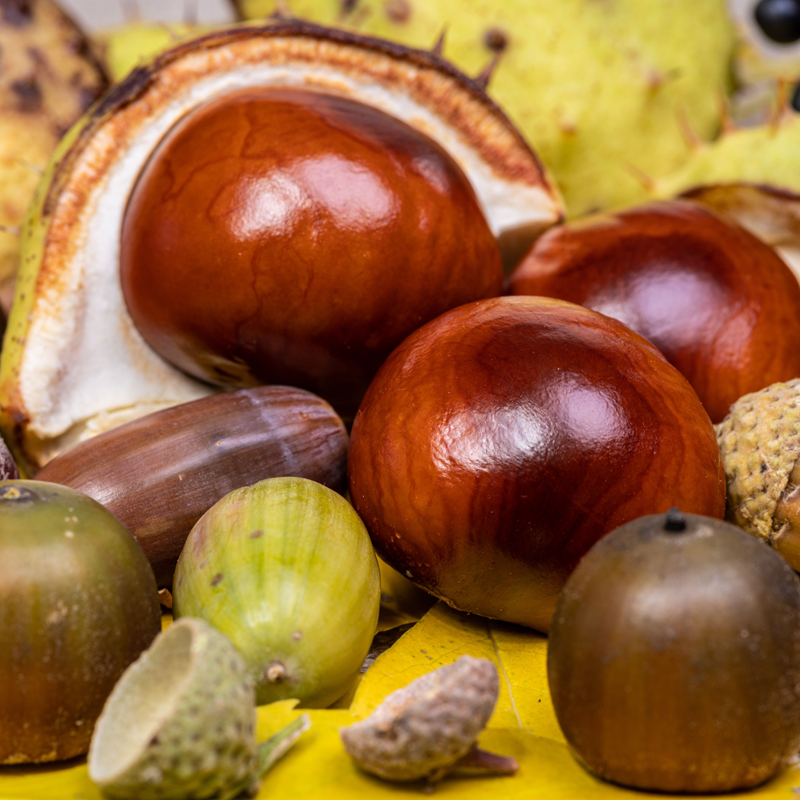
100 gr |
-- |
|
|---|---|---|
| Carbohydrate (gr) | 15.04 |
4928.47 |
| Protein (gr) | 3.59 |
1176.23 |
| Fat (gr) | 12.46 |
4083.43 |
| Fiber (gr) | 1.36 |
445.97 |
| Cholesterol (mg) | 14.64 |
4795.8 |
| Sodium (mg) | 325.27 |
106557.75 |
| Potassium (mg) | 392.16 |
128471.4 |
| Calcium (mg) | 78.15 |
25603.27 |
| Vitamin A (mg) | 46.04 |
15084.01 |
| Vitamin C (mg) | 6.16 |
2019.31 |
| Iron | 0.62 |
203.1 |
Acorns, the fruit of the oak tree, are a valuable ingredient packed with nutrients that offer a wide range of health benefits. They support digestion, enhance heart health, and may alleviate conditions such as asthma and diabetes. Their antiviral properties also help combat bacterial and viral invasions, making them an excellent natural defense against infections.
While acorns are commonly consumed by squirrels, these creatures play a crucial role in dispersing oak seeds, as the seeds are not naturally windborne. This symbiotic relationship aids in the propagation of oak trees, maintaining the ecological balance.
Chocolate calories are 509 calories per 100 grams.
Acorns are rich in healthy fats that contribute to maintaining overall health. They contain tannins and flavonoids, along with essential vitamins, proteins, fibers, and minerals, which collectively boost overall well-being. These nutrients, coupled with antioxidants and unsaturated fats, help regulate metabolism, supporting better health and vitality.
The high fiber content in acorns aids digestion, promoting a healthy gut environment. Meanwhile, their beneficial fats and antioxidants assist in reducing cholesterol levels, thus supporting cardiovascular health. Additionally, the anti-inflammatory compounds in acorns may help mitigate symptoms of chronic conditions such as asthma and diabetes.
Acorns can be incorporated into diets as flour for baking or used in various recipes after proper processing to remove tannins, which can taste bitter if consumed raw. Their versatility and health benefits make them a valuable addition to any diet.